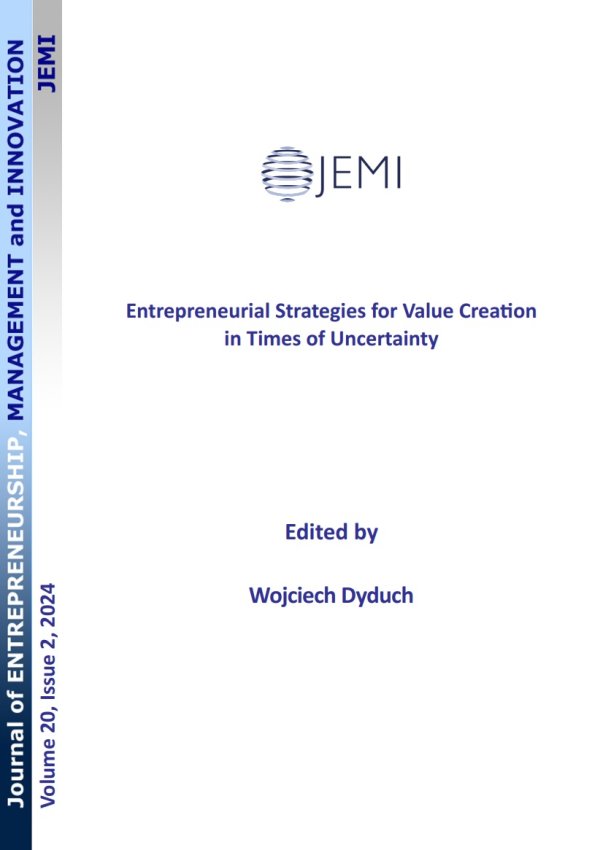Abubakar S. Garba, Ph.D., Department of Business Admin & Management, School of Management Studies, Kano State Polytechnic, Nigeria, This email address is being protected from spambots. You need JavaScript enabled to view it.
Fariastut Djafar, Ph.D., Department of Economics, Faculty of Economics and Business, Universit Malaysia Sarawak, Malaysia, This email address is being protected from spambots. You need JavaScript enabled to view it.
Shazali Abu Mansor, Prof., Department of Economics, Faculty of Economics and Business, Universit Malaysia Sarawak, Malaysia.
Abstract
The objective of this paper is to examine the influence of poverty, unemployment and GDP on entrepreneurship. Time series data for 31 years was collected from various official sources for the analysis. Vector autoregressive (VAR) framework was adopted to systematically capture the rich dynamic of multiple time series. Other tests conducted were unit root test, Johansen and Juselius (1990) co-integration test, Granger causality and dynamic model analysis beyond the sample. It was found that poverty and GDP influence entrepreneurship negatively, while unemployment influences entrepreneurship positively. The paper reveals the presence of both opportunity and necessity driven entrepreneurs in the country. There is a need for the government to revisit the existing policy on micro, small and medium enterprises (MSMEs) to adequately address the problem of the poor and unemployed by availing them with the opportunity to engage in entrepreneurship. Future study should consider mitigating the effect of frequent entry and exit from entrepreneurship in their data to correctly predict the effect of entrepreneurship on the economy.
Keywords: entrepreneurship development, poverty, unemployment, GDP.






